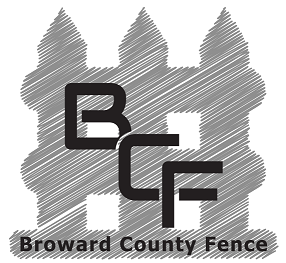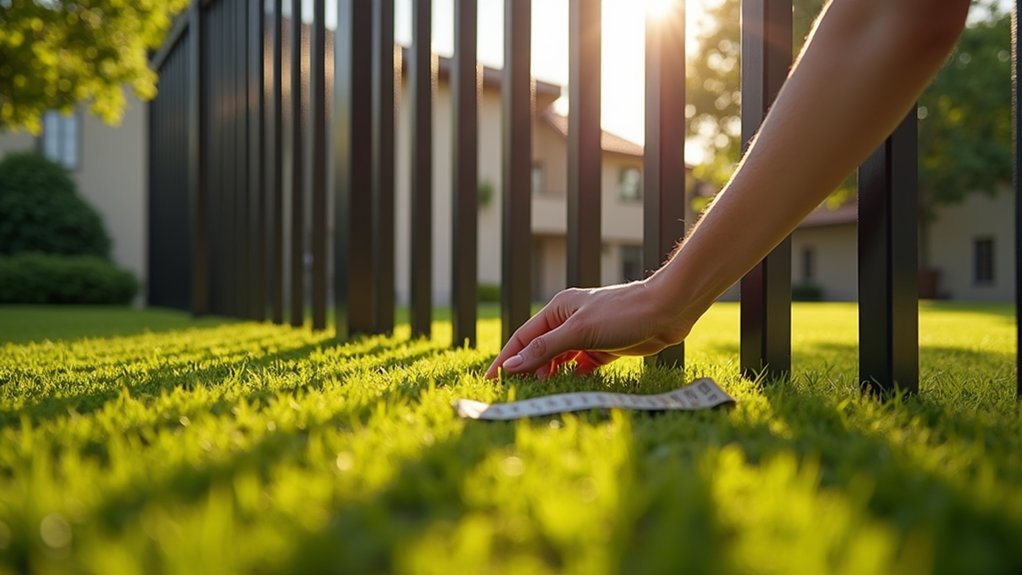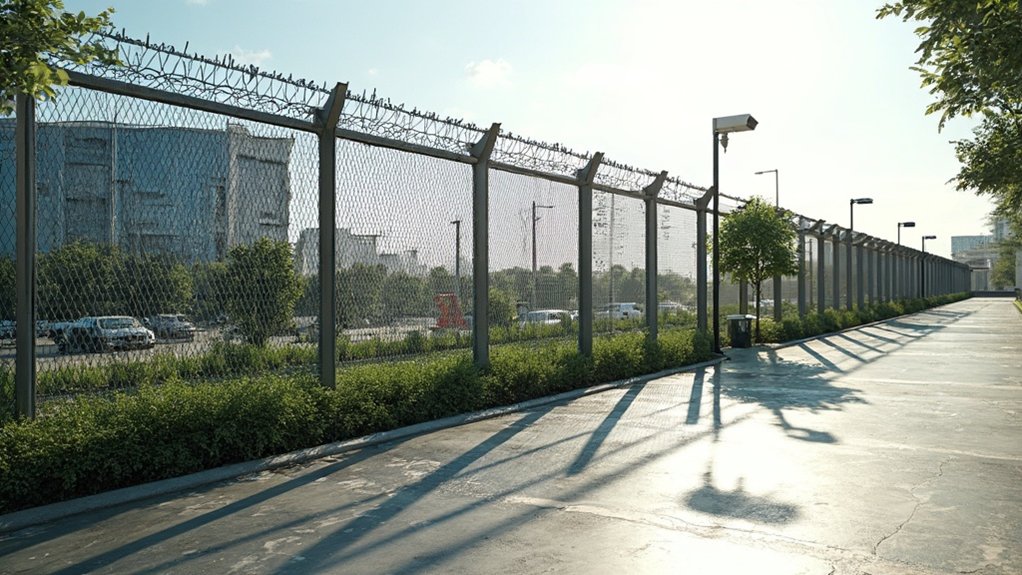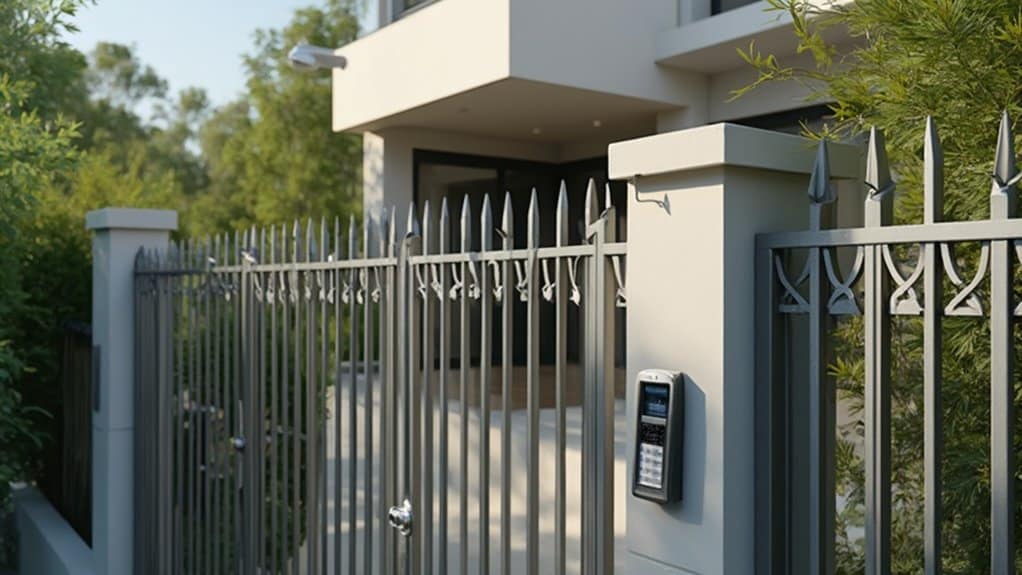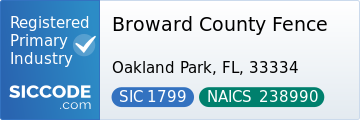To choose the right security fence for your property, start by assessing your security needs, such as local crime rates and specific vulnerabilities. For high-security areas, consider welded mesh fencing, while chain link is suitable for less sensitive locations. Evaluate materials for strength and maintenance; for instance, vinyl is low-maintenance but may not be as secure as metal options. Don’t forget to balance security with visual appeal—an attractive fence can enhance curb appeal. Lastly, factor in installation costs. By making informed choices, you can effectively boost your property’s security.
Key Takeaways
- Assess your property’s security needs by looking at local crime rates and any vulnerabilities, which will help you decide how strong your fencing should be.
- Select a material that offers a good mix of strength, durability, and easy maintenance, while also fitting your property’s look.
- Think about the fence’s height and design to improve visibility and act as a deterrent, ensuring it meets local regulations.
- Keep your budget in mind, including costs for materials, installation, and any extras like gates.
- Consider the long-term benefits, such as boosting your property value and lowering insurance costs, to make sure your investment in security fencing pays off.
Assessing Your Security Needs
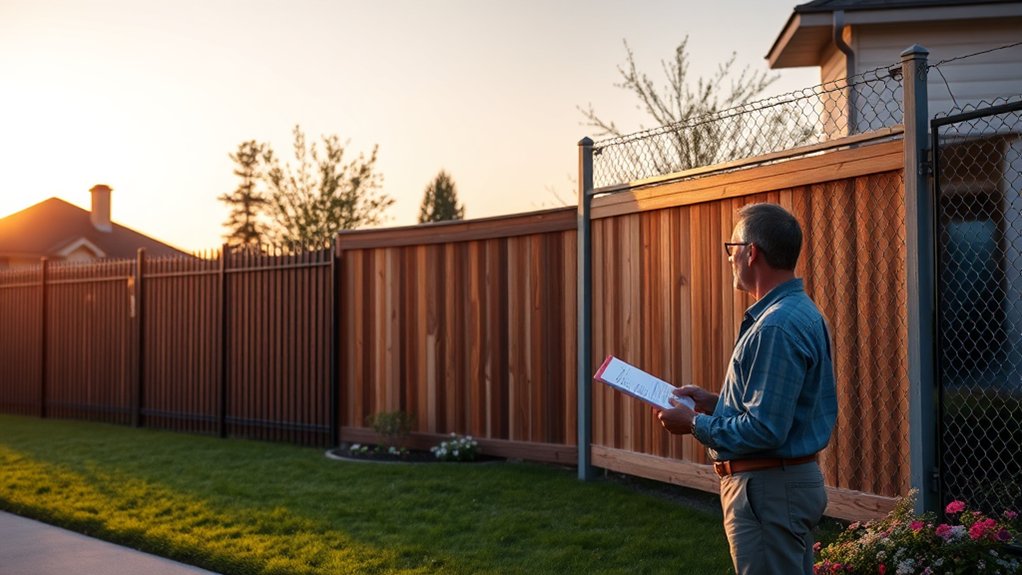
How do you choose the right security fence for your property? Start by evaluating your environment. If you live in a high-crime area or near industrial sites, your fence needs to be more robust.
Look at past incidents and current vulnerabilities, like how many people pass by and where your entrances are located. A layout with multiple access points may require a more complex fencing solution.
Check for any electrical systems near the fence to ensure they’re secure, and consider the risk of natural disasters, which might call for specialized materials. Additionally, consider that homes without security systems are 3x more likely to be targeted by burglars. Finally, assess your current security measures, as a physical security assessment can help identify potential risks and inform your fencing choices. Combining a solid fence with effective access control and surveillance can greatly enhance your safety.
Understanding Different Types of Security Fences
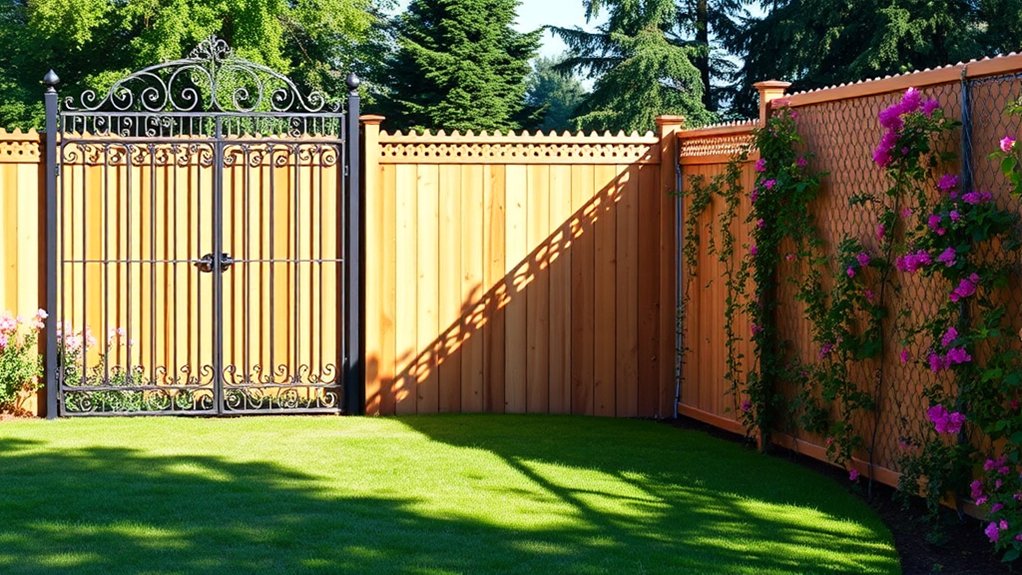
When selecting a security fence, it’s crucial to compare the security levels of various types. For instance, welded mesh offers high durability, making it ideal for critical areas, while chain link is suitable for less sensitive spaces. Also, consider features that deter climbing, such as spikes or razor wire, to enhance protection and keep intruders at bay. Additionally, incorporating multiple layers of security can significantly improve the overall effectiveness of your fencing system. Understanding the functionality of fencing will help you choose the best type for your specific needs.
Security Level Comparison
When choosing the right fencing for your security needs, understanding the security levels is crucial.
The LPS 1175 standards range from SR1 to SR8, with SR1 and SR2 suitable for low to medium-risk areas and SR4 and above designed for high-risk environments. High-security metal panels can be customized to meet these standards, providing both security and aesthetic appeal. Think about the tools an intruder might use and how much time they’d spend trying to break in. This information helps you select a fence that not only meets your security needs but also fits your budget and operational requirements, keeping you safe from potential threats. Additionally, considering the tool classifications provided by standards like LPS 1175 can guide you in assessing the appropriate level of protection.
Material Strength Overview
Choosing the right material for your security fence is crucial for both durability and appearance. Here’s a quick rundown of your options:
- Steel: Strong and durable, making it great for high-security areas.
- Aluminum: Lightweight and resistant to corrosion, ideal for low-maintenance needs.
- Wrought Iron: Offers a classic aesthetic but requires regular maintenance to prevent rust.
- Stainless Steel: Best for coastal locations due to its excellent corrosion resistance.
When selecting a material, consider its durability, maintenance needs, visual appeal, and cost.
A smart choice will ensure your security fence protects your property while looking good.
Climbing Resistance Features
When choosing security solutions for your property, it’s crucial to include climbing resistance features in your fence design.
Techniques like tightly spaced mesh and anti-climb mesh reduce grip and footholds, making it harder for intruders to climb. Adding pointed tops and smooth surfaces further discourages climbing.
Height is also key; taller fences create a stronger barrier. Consider materials like welded wire mesh or expanded metal for added strength.
Evaluating Material Durability and Maintenance
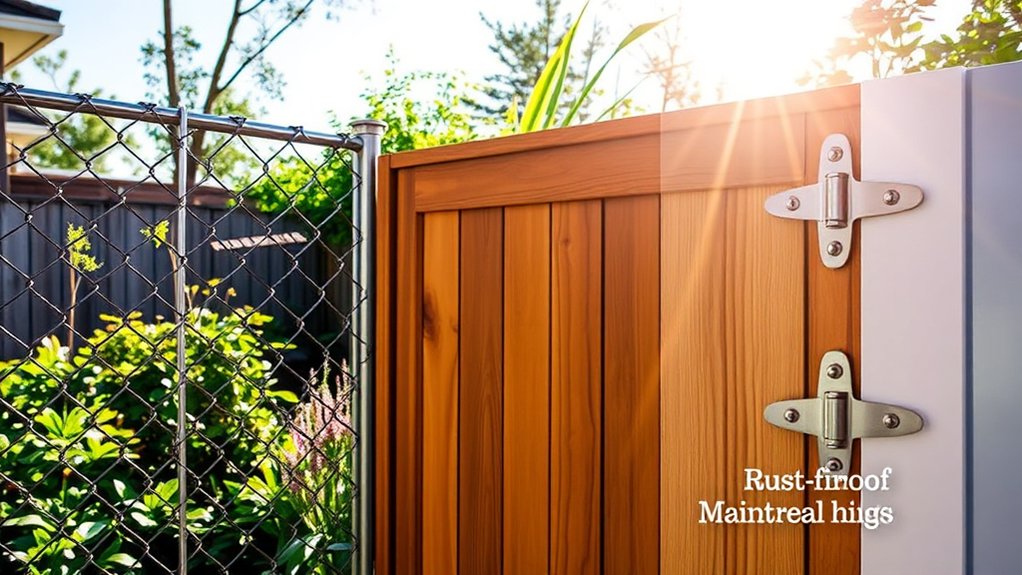
When selecting a security fence, it’s crucial to assess material durability and maintenance for lasting effectiveness and cost savings.
Here are the key factors to consider:
- Material Strength: Ornamental steel is the strongest option (rated 10/10), closely followed by aluminum (9/10).
- Weather Resistance: Aluminum and vinyl are great for humid climates as they resist rust and corrosion.
- Maintenance Needs: Ornamental steel and aluminum require little upkeep, while wood needs regular sealing and treatments.
- Impact Resistance: Steel fences can endure heavy impacts, whereas vinyl may crack under pressure.
Considering Aesthetic and Design Options
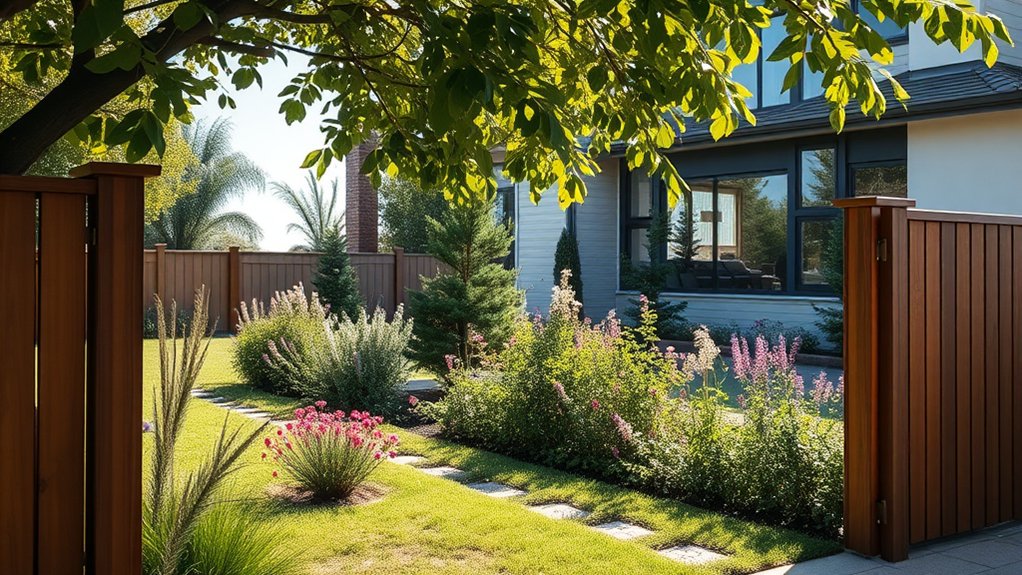
Enhancing security and curb appeal with your fence is achievable by focusing on design.
For instance, horizontal slat fences offer privacy while allowing airflow. Gabion fences provide security and a unique look with eco-friendly materials.
Custom heights and materials can match your home’s style, and adding lighting can improve safety and aesthetics at night.
Decorative features like spiked tops can boost both security and visual interest.
Your fence should reflect your personal style while protecting your property effectively.
Budgeting for Your Security Fence
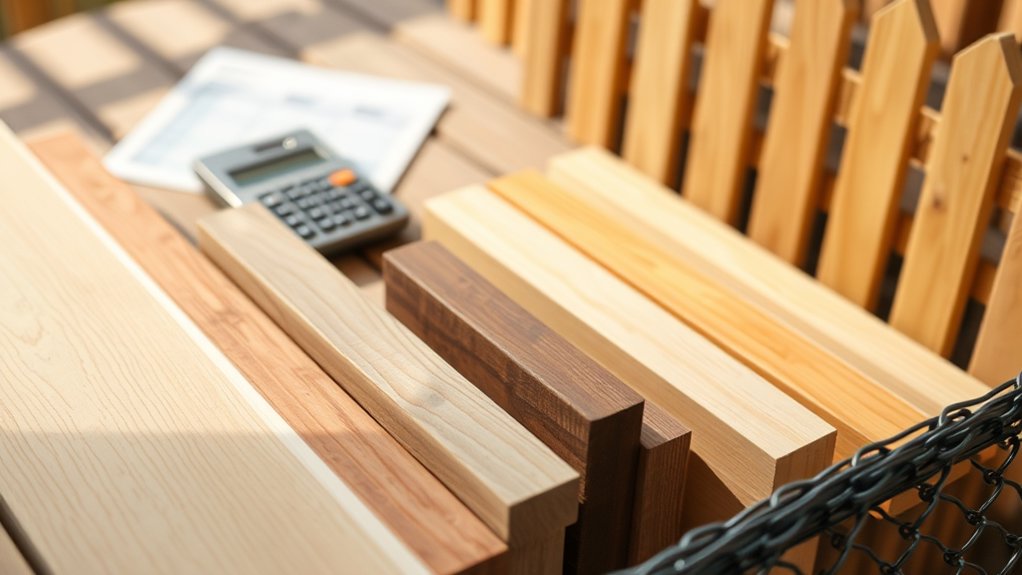
Budgeting for Your Security Fence
Planning your budget for a security fence is crucial. Here are some key factors to consider:
- Material Costs: Options include wood, vinyl, aluminum, or metal, typically costing between $20 and $85 per linear foot.
- Length & Height: Measure the total perimeter; bigger areas and taller fences will increase your costs.
- Installation Options: You can hire a pro (costing $1,500 to $10,000) or opt for DIY to cut down on labor costs.
- Additional Features: Don’t forget to account for gates and security upgrades, as these can add to your total expenses.
Installation Factors to Consider
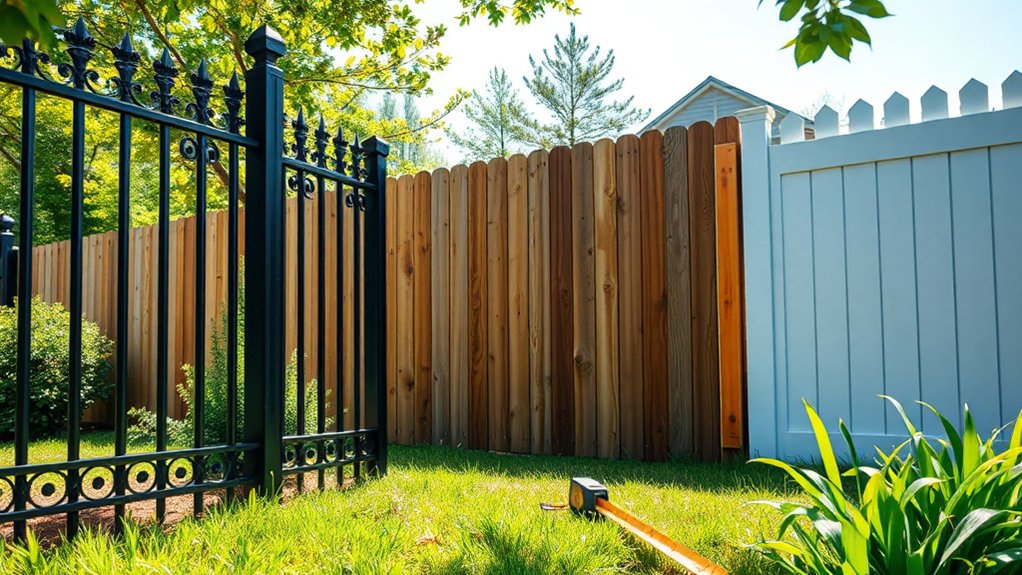
When choosing a security fence, don’t just think about looks and cost—installation is key to its effectiveness. Poor installation can waste your investment, so pay attention to the details. Also, be aware of local zoning laws to prevent fines or conflicts.
| Installation Factor | Importance | Key Consideration |
|---|---|---|
| Foundation Strength | Prevents collapse | Ensure posts are well-anchored |
| Proper Measuring | Avoids disputes | Clearly mark property lines |
| Secure Gating | Enhances security | Gates should be as strong as the fence |
Long-Term Benefits of Security Fencing
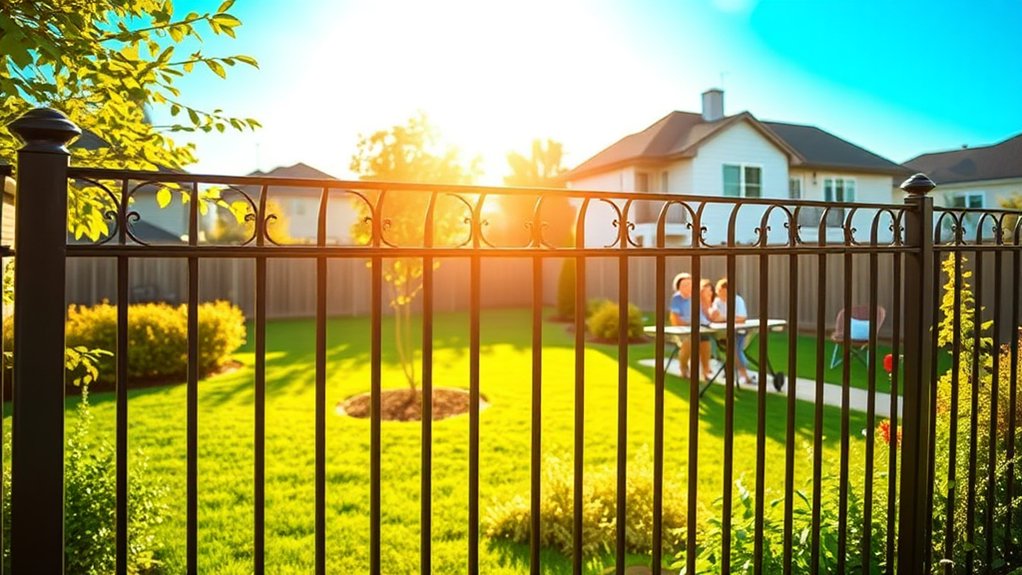
Investing in security fencing not only boosts your property’s immediate protection but also offers long-term benefits that can enhance its value and appeal.
Here are some key advantages:
- Savings on insurance: Many insurance companies provide discounts for properties with security features.
- Higher property value: A secure home is often more appealing to buyers or renters.
- Curb appeal: Various styles can complement your home’s look, making the neighborhood more attractive.
- Privacy: Security fencing allows you to enjoy your outdoor space without unwanted attention.
Applications and Use Cases for Security Fences
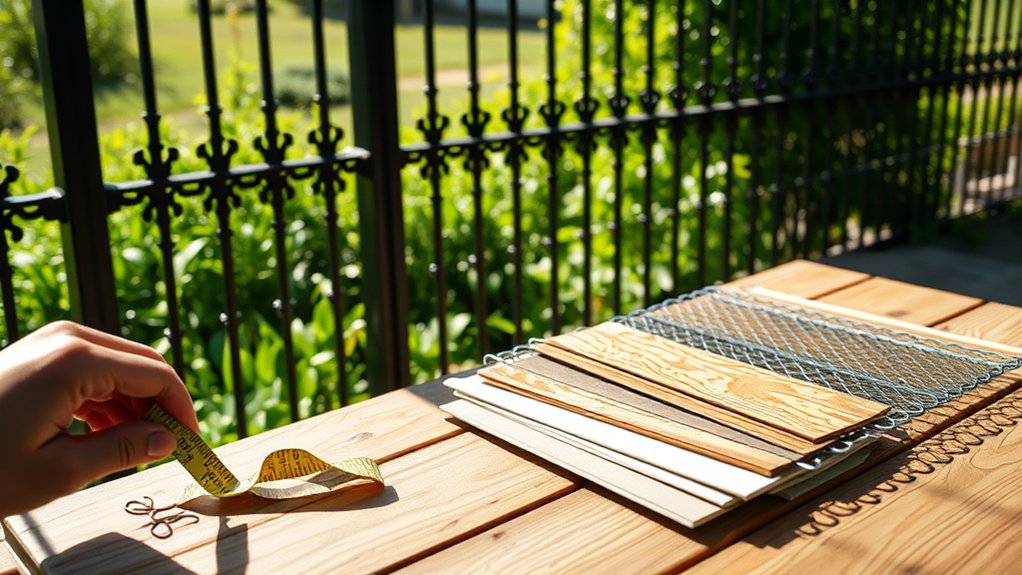
Security fences are crucial for protecting various properties by addressing specific security needs across different sectors.
For warehouses and distribution centers, strong fencing is essential due to rising cargo theft. Electric fences deter thieves and improve access control, preventing unauthorized entry.
In truck yards and parking lots, fencing secures valuable vehicles, while public spaces require high-security solutions to protect critical infrastructure and ensure public safety.
Government facilities need fencing to block physical breaches, while businesses benefit from secure yet attractive designs.
Frequently Asked Questions
What Are the Best Security Fences for Residential Properties?
For residential security, wooden fences provide privacy and a classic look, while vinyl fences are durable and require little maintenance. Both options boost your property’s safety and cater to different preferences, making them great choices for homeowners.
How Can I Enhance My Fence’s Security Features?
Enhancing your fence’s security can make a big difference in deterring burglars. Consider adding features like motion sensor lights or security cameras. Pair these with strong materials like vinyl or metal for added durability. This not only protects your home but can also increase your property value.
Are There Security Fences That Require No Maintenance?
No fence is completely maintenance-free, but vinyl and metal fences need very little upkeep. Their strength and weather resistance mean fewer repairs, making them great options for security with low maintenance.
Can I Install a Security Fence Myself?
Yes, you can install a security fence yourself. Select materials like chain-link or wood, and follow clear instructions. With basic tools and some effort, you can create a secure and budget-friendly fence.
What Permits Are Needed for Installing a Security Fence?
Installing a security fence often requires permits and adherence to zoning regulations. To ensure compliance and avoid fines, check local laws, submit an application, and be prepared for inspections. For example, some areas may have height restrictions or specific materials you can use. It’s essential to understand these rules before starting your project.
Conclusion
Choosing the right security fence is about finding a balance between safety and appearance. A strong chain-link fence can keep intruders out, while a stylish wrought iron fence can boost your property’s look. Remember, a quality fence not only protects your home but can also increase its value. Ultimately, the best fence combines durability with design, keeping your property secure and attractive.
